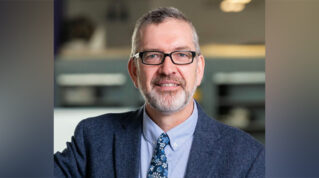In 2022 Britain remains a deeply divided nation. Those divisions take many forms: class, income, gender, race and education. In England in particular, substantial inequalities in educational attainment are linked to social disadvantage and place – as demonstrated again this year by GCSE and A level results. This increasing attainment gap between disadvantaged and better-off pupils is only the visible part of a problem that starts in the early years and widens during a child’s schooling, with predictable, detrimental consequences for social mobility.
As one previous social mobility tsar, Alan Milburn was fond of pointing out, for decades state school children have not been reaching the highest levels in influential professions. It may well be an old-fashioned view, but I strongly believe that parents who espouse views about fairness, justice and redistribution but opt out of the state sector and send their children to private, fee-paying schools are choosing to become part of the problem, rather than seeking to be part of the solution.
It is a sad fact that those who already have influence, those who already have a ‘voice’ in our society, have such a high stake in the current order that they – even if only subconsciously – work to protect it. The uncomfortable truth is that when middle-class parents abandon the state sector in favour of the private, it is conservative and not progressive politics that triumphs.
It is in fact a systemic problem we face as a nation that, in the pursuit of privilege, many well-off (and not so well-off) parents will do whatever it takes to ensure their child starts the race for future success and prosperity further down the track than other children. Of course, it is not unreasonable that any parent should want their child to do as well at school and in life as they have done themselves – or indeed better. We live in a free society, and if some parents choose to secure advantage and privilege by sending their children to elite schools then there is little the state can do about it.
Policy should focus on regional disparities and disadvantage
British public schools have always been a production line for the class system. They employ some of the best-qualified teachers, with as many as two-thirds educated in the top 20 British universities. They can – and do – raise their fees steadily, select their pupils, have a growing endowment income from their benefactors and host some of the most impressive sporting and extra-curricular activities. And they are not lacking in recruits from a middle class obsessed by perceived educational and social advantage.
But perhaps healing the class divide is a bridge too far for education. Instead of the focus we’ve seen on emulating the culture and results of public schools in ‘model’ schools and trusts, policy should be focusing on ironing out other rifts that are evident across our state system – especially regional disparities and the pernicious effects of disadvantage.
To that end, we have examples of what might work. We could roll out a national programme to build on the successes of previous efforts like the London Challenge and the National Challenge. London remains way ahead of the rest of the country when it comes to the education of disadvantaged children, despite the fact that it has the highest levels of childhood deprivation in England.
As a result of the London Challenge the capital’s schools benefited from visionary leadership, greater resourcing, a stock of quality teachers, excellent professional development, a diverse school population, strong school partnerships and better access to cultural opportunities.
There’s no reason that success couldn’t be repeated in Birmingham, Manchester, Liverpool or indeed Cornwall. As a nation we are at our best when at our boldest. A series of new national and regional challenges supported by greater resources targeted at where the need is greatest can and will deliver on education’s promise to unlock every young person’s potential.
Some will ask whether we can afford it. The answer is yes, and can we afford not to?
















You are making sweeping generalisations. Parents who take their children out of the state system are relieving some of the burden on the state’s limited funds.
Not all “already have a voice” or are pursuing privilege!
Our son got a scholarship to a small rural private school as did several of his classmates. We pay half fees. We live in social housing. None of us parents are anywhere near the stereotype you describe.
I had cancer and wanted him in a small, personal school that had a full time school nurse who supported him whenever he needed it.
You are adding to the myth that the only privately educated child attends Eton and is the offspring of the very wealthy.